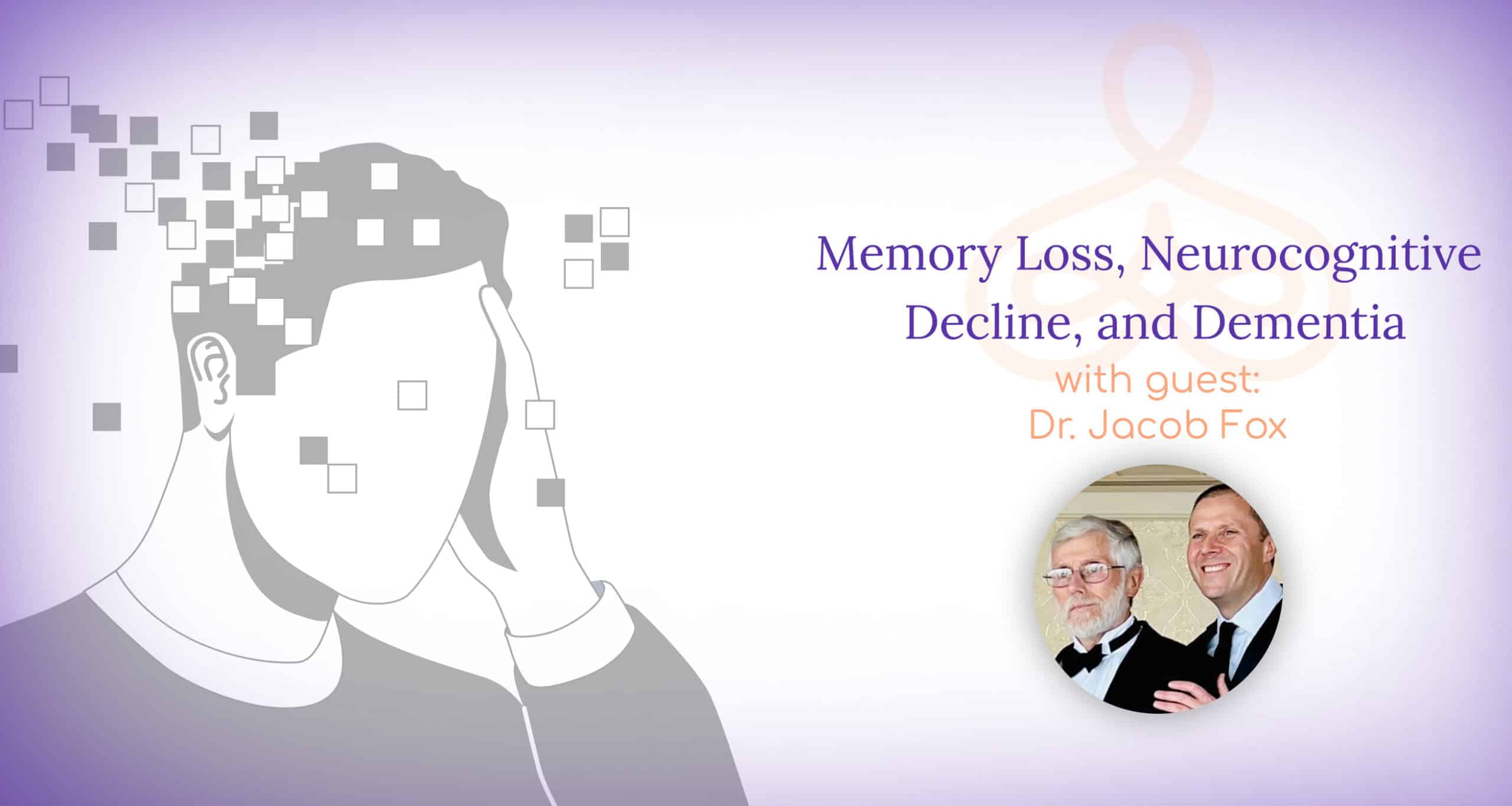Cognitive dysfunction can manifest in a variety of ways, from temporary impairment after a stroke to long-term conditions like dementia. In a recent Healthful Woman episode, neurologist Dr. Jacob Fox joined his son, Dr. Nathan Fox, to break down some of the differences between terms like “cognitive decline,” “dementia,” and “Alzheimer’s.”
What is Dementia?
Dementia is a gradual, consistent decline in cognitive function. Early signs of dementia are difficulty remembering a conversation someone just had and this progresses into forgetfulness about things that happened longer ago in the past. Speech difficulties are also a symptom of dementia that has progressed. Dementia progression can take a long time. Some people may stay the same with their level of cognitive decline for many years before symptoms progress.
What is Alzheimer’s Disease?
Alzheimer’s is caused by the deterioration of brain cells, and it is actually a cause of dementia. Our brains have billions of brain cells but, for unknown causes, the cells responsible for holding onto information are most affected. As we age, blood vessels also deteriorate, and this combined cell death is largely responsible for the overwhelming number of people with cognitive decline later in life. Lack of blood vessels and oxygenation to the brain impact its ability to function.
Who is at Risk for Dementia?
The biggest risk factor for dementia and other forms of cognitive impairment is age. Dr. Jacob Fox explains that “between 75 and 84, it’s been said to be 10% to 15%. And 85 and above, it may be as high as 40%.” It’s also possible that women are more at risk for dementia but there is no proven connection; it may simply be caused by women’s longer lifespans.
Other risk factors (more specifically, vascular risk factors) include high blood pressure, smoking, lack of physical activity, and poor diet. According to Dr. Jacob Fox, people who do not have these vascular risk factors are 60% less likely to have dementia.
Should You be Worried About Forgetfulness?
Maternal fetal medicine specialist Dr. Nathan Fox poses an important consideration: “I have a harder time pulling out someone’s name when I meet them or a harder time remembering some odd detail. How would I know if that’s just, ‘Hey, this is normal. This happens in your 50s, your 40s?’” Dr. Jacob Fox says that he often practices with the idea that if someone comes to him with this worry, they probably do not have dementia. Oftentimes, his patients with Alzheimer’s disease or dementia are brought in by family members.
Forgetfulness about where you set your keys or wallet is often due to a lack of attention when setting them down. Some people have always been forgetful. A common problem is having difficulty with names, but this is usually not an immediate cause for concern.
Learn More on the Healthful Women Podcast
For more information about neurocognitive disorders and how you can support a recently diagnosed family member, check out the full episode online. If you believe you are at risk for dementia or know someone who has been showing symptoms, we encourage you to call our office for more information and treatment recommendations.

